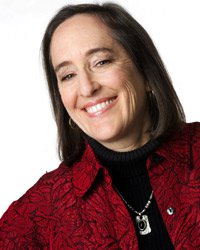Ask Ellen: First-Year Fears
How can I be successful as a new teacher in an urban classroom?
Your content has been saved!
Go to My Saved Content.
Dear Ellen:
I'm so excited about my new job. I'll be teachingsixth grade in an urban school. There isa new, energetic principal, and even thoughalmost all of the school's students are eligiblefor our free-lunch program and we lack manyresources, I know there is the hope and expectationthat I can make good things happen inour classroom. I learned a little about beingsuccessful in an urban classroom in my teacher-educationprogram, but as the first day getscloser, I'm getting nervous. What can I do toensure a good start this fall?
Ms. Newbie
Dear Ms. Newbie,
The fact that you referred to "our classroom" is a greatstart. You and your students should spend those openingweeks building a strong learning community.Engage your students in activities thathelp you get to know them well. Usethose first days to ask important questionsthat set the tone for the year:"What rules will help us create a safeand strong environment for learning?""What are our hopes and dreams forour year?" "How will we stay motivatedwhen we face challenges?"
We know how important it is toreach out to families right away, sharingyour hopes and expectations forthe class with those closest to yourstudents. Invite participation in anintroductory letter and make phonecalls to welcome parents as part of thelearning community you oversee. The more you reachout now to work with your students and their families,the easier it will be to make calls later in the year. Youmight even consider home visits to get a better sense ofthe community your students live in.
Take some time to get familiar with the standardsand curriculum for your grade level, then lay out thegoals for each quarter's work. When the students come,you will want to consider their needs and interests, buthaving a road map of expectations will help you pickthe right strategies to support your students' learning.
After building a learning community and unpackingthe curriculum, you are certain to have questions.Make sure you have found a support structure for yourself.More schools and school districts are committingto mentoring programs, because they know new teachersrequire support in those first years to develop therepertoire, confidence, and knowledge they need to beexcellent teachers.
Find someone with whom you can build a trustingrelationship, one in which you can ask questions,reflect on your teaching, and find support for focusingon student learning.
If your school has not connected you with a mentor,reach out to veteran colleagues yourself. Yourgrade-level or content team is a good starting place,but also connect with the school sage, someone whoseems to know everyone and can help navigate thesite's politics. Find the math and literacy specialistswho might coach you, the friendly secretary and custodianwho can help you with logistics and connectionsto the community. The principal is another keyresource. Because you are both new to the school, youcan learn together about the school and community. Each of these valuable adults can make your life just a little easier -- and, most of the time, all you trulyhave to do is ask!
You bring a wonderful sense ofanticipation and hope to your teaching,typical of our best new teachers.Such a perspective will serve youwell, especially as you gain moreunderstanding about what challengesyou're facing. Remain unbowed andunbroken in your commitment tostudents. Our work is too importantfor us to accept the status quo.
Credit: Bart Nagel
Finally, to all of us who teach witha Ms. (or Mr.) Newbie this fall, a specialnote: I'm encouraging you to do something specialfor her. There is so much we can do to support ournew teachers, even if we are not in the same grade levelor subject area, to make ourbuildings a friendly environmentfor children and adults.
Here's to a great year!